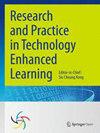自动分级软件工具与反馈过程,以支持学习的硬件描述语言
IF 3
Q1 EDUCATION & EDUCATIONAL RESEARCH
Research and Practice in Technology Enhanced Learning
Pub Date : 2023-08-04
DOI:10.58459/rptel.2024.19015
引用次数: 0
摘要
随着现代电子电路的日益复杂,硬件描述语言(HDL)在数字电子设计领域得到了广泛的应用。因此,支持学生学习这些语言是至关重要的。本研究旨在通过开发一种具有反馈过程的自动化评估软件工具来支持HDL的学习,并进行教育干预以支持学生的学习过程,从而满足这一需求。该工具的功能是基于类似的开发选择的,并设计和实现了一个原型。此外,在哥伦比亚国立大学的数字电子学课程中进行了为期五周的教育干预。通过分析学生与该工具的互动以及他们对其使用的看法,该研究考察了他们的学习经历。学生们强调的对他们的HDL学习过程最有益的功能包括工具的在线可用性,帮助他们识别和纠正代码中的错误的反馈系统,提供即时反馈,带有语法高亮显示的在线编辑器以及图形用户界面。这项工作对工程领域的HDL教学有两个重要贡献。首先,开发了一个可公开访问的HDL评分工具,通过自动评分器为学生提供即时的形成性和总结性反馈。其次,已经提供了关于使用这种工具在提高学生学习过程中的好处的经验证据。本文章由计算机程序翻译,如有差异,请以英文原文为准。
Automated grading software tool with feedback process to support learning of hardware description languages
Hardware Description Languages (HDL) have gained popularity in the field of digital electronics design, driven by the increasing complexity of modern electronic circuits. Consequently, supporting students in their learning of these languages is crucial. This work aims to address this need by developing an automated assessment software tool with feedback process to support the learning of HDL and making an educational intervention to support the learning process of students. The tool’s features were selected based on similar developments, and a prototype was designed and implemented. Additionally, an educational intervention was conducted over a five-week period in a Digital Electronics course at the National University of Colombia. Through analyzing students’ interactions with the tool and their perceptions of its usage, the study examined their learning experiences. Among the features highlighted by students as most beneficial for their HDL learning process were the online availability of the tool, the feedback system that helped them identify and correct errors in their code, the provision of immediate feedback, the online editor with syntax highlighting, and the graphical user interface. This work makes two significant contributions to the field of HDL teaching in engineering. Firstly, a publicly accessible HDL grading tool has been developed, offering students immediate formative and summative feedback through an automated grader. Secondly, empirical evidence has been provided regarding the benefits of using such a tool in enhancing students’ learning process.
求助全文
通过发布文献求助,成功后即可免费获取论文全文。
去求助
来源期刊

Research and Practice in Technology Enhanced Learning
Social Sciences-Education
CiteScore
7.10
自引率
3.10%
发文量
28
审稿时长
13 weeks
 求助内容:
求助内容: 应助结果提醒方式:
应助结果提醒方式:


